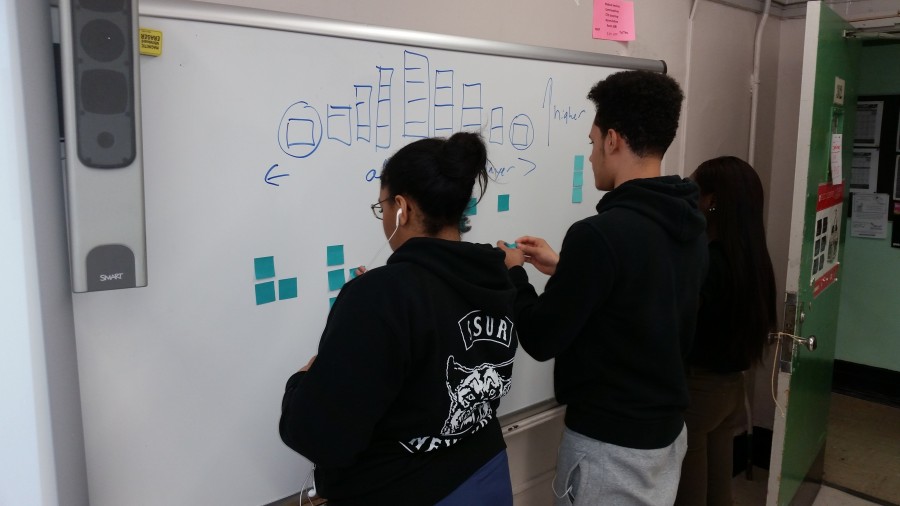This year our school is talking about student work in mixed groups. We have been placed into 7 groups of teachers and social workers, each of whom are related to one student. After each session, the teacher bringing the work gets ideas for their teaching, and the group gains insights into the student and how our work affects them. These conversations have only involved essays so far, but this past Friday I was the presenter.
Due to realities of our schedule I provided a student’s partially finished math project for our descriptive inquiry group to look through. It was a project where the student had to create a set of equations that then help her solve a larger problem. The student make a mistake early on in the assignment and continued finishing the work, not being able to see that answers stopped making any sense. The discussion about this did not just allow for us to talk about the student. It allowed the members of the group a chance to step into a math teachers shoes and decide to how to respond to student misconception.
Talking about this student’s work flared up and we ended up having to scrap the rest of the inquiry protocol. The issue that broke our group apart happened after I explained the project and everyone gave their initial impressions. Someone noticed that the student made the a mistake. “The student should have multiplied these answers by x,” the teacher stated, referring to the column with numbers far to small to make sense in the situation, “so the teacher should show them what correct answer should be.” I began to feel a little uncomfortable. My instincts say the first thing to do would be to understand why the student made the mistake. I would need to ask a series of questions before I gave any kind of instruction. Thesequestions would intend to help the student to understand why the need to correct it, not to correct the multiplication, thus preventing the student from making sense of the problem.

